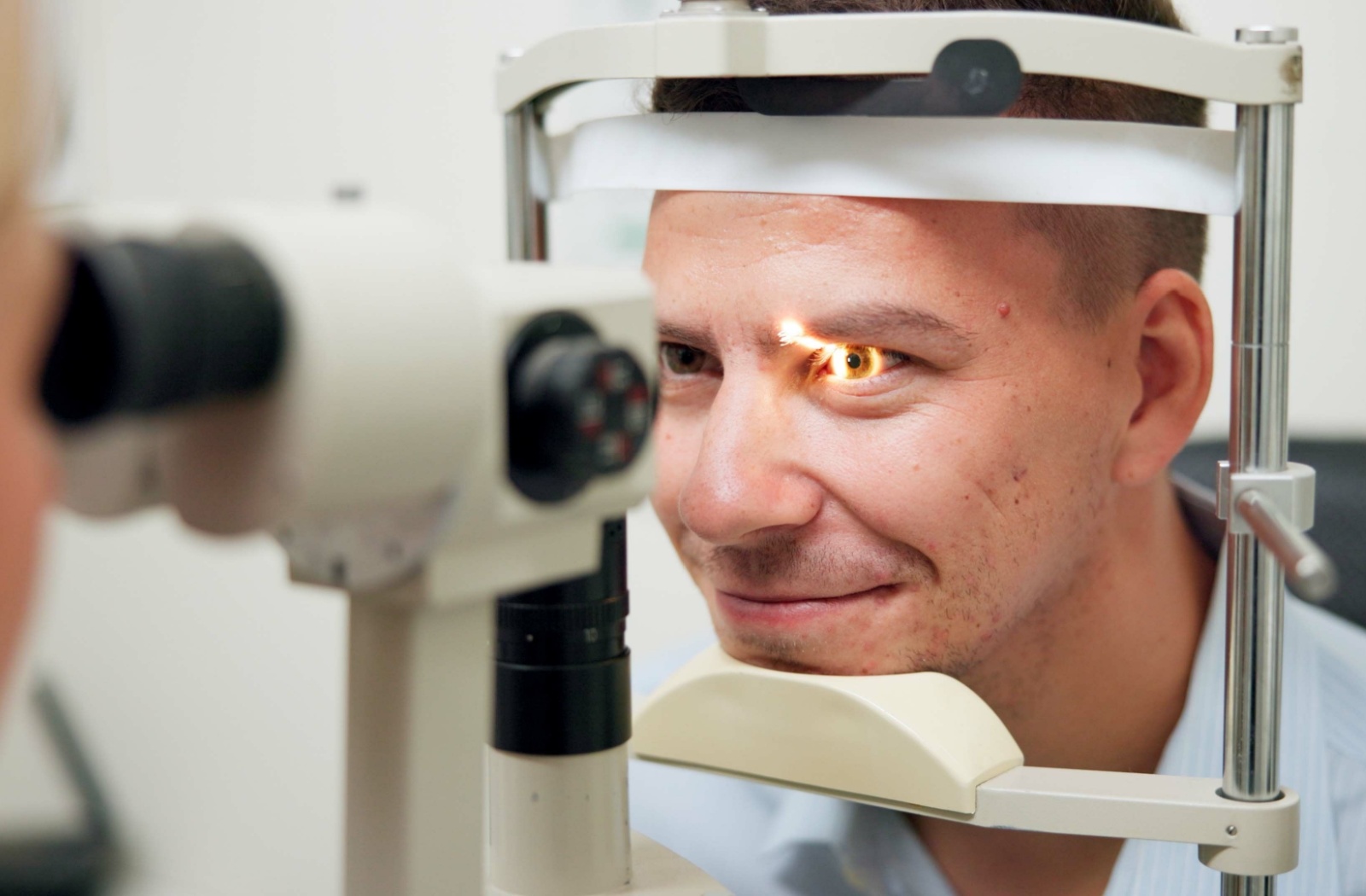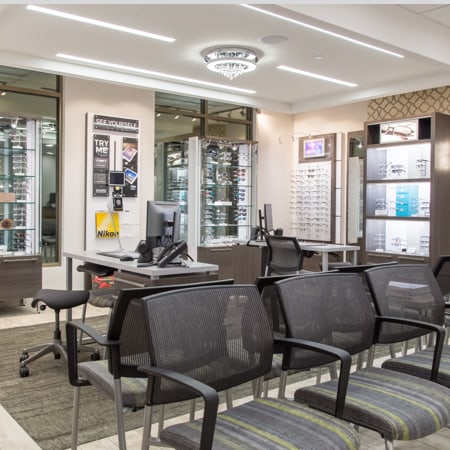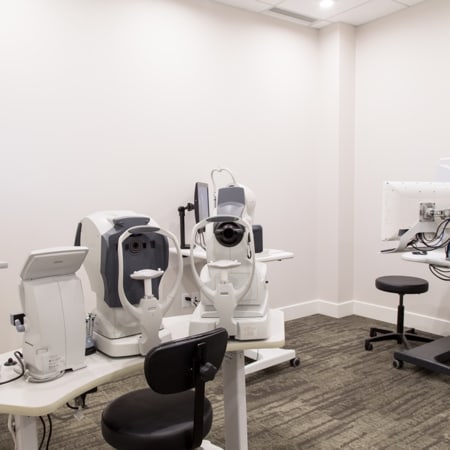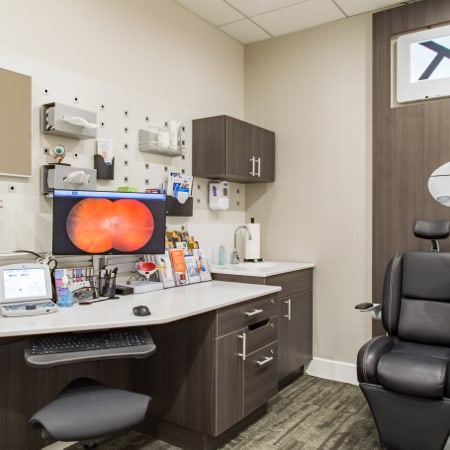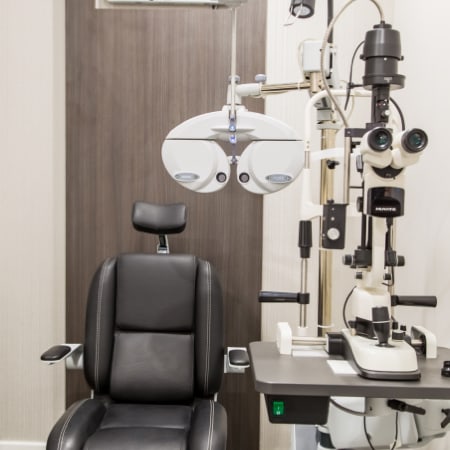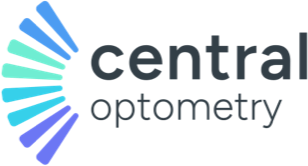Your vision is a vital part of your overall health, yet it’s often overlooked. We all know regular eye exams support clear vision, but they also play a key role in detecting underlying health conditions. How often you should have an eye exam depends on your age.
Children should have their eyes checked at least twice before age 5 and annually thereafter. Adults should get an eye exam every 1–2 years, and seniors should annually.
Life is full of moments to cherish, and maintaining clear, healthy vision means you don’t miss a single one.
Why Protecting Your Vision Matters
It’s easy to take your vision for granted until something feels off. However, eye exams are about much more than just updating your glasses prescription. They’re also essential for the early detection of potential eye issues.
From glaucoma to cataracts or even macular degeneration, many conditions show no symptoms in the early stages. Diagnosing these issues early allows for timely treatments that have a greater chance of preserving not just your vision, but your overall quality of life.
The fact is, 1 in 7 Canadians have some form of vision-threatening condition. When you’re managing your busy daily life, prioritizing eye health may seem like a challenge, but the benefits outweigh the effort by far. A healthy set of eyes translates into independence, mobility, and making the most of every day.
Eye Exam Schedules by Age Group
To simplify things, here are general guidelines based on age and risk factors:
Children (Aged 0-19)
Children should have their eyes checked twice before age 5 to get them prepared for school, then annually after that. Detecting and addressing early issues during development sets children up for success in learning and daily life.
Adults (Aged 20-64)
Adults should get an eye exam every 1–2 years, unless health risks like diabetes require more frequent visits. These regular checks matter because adults often overlook emerging conditions such as dry eye or early age-related macular degeneration (AMD) symptoms, which can quietly worsen over time.
Seniors (Aged 65+)
Age-related conditions like cataracts, macular degeneration, and glaucoma become more common in seniors. That’s why optometrists recommend yearly exams to allow for timely management.
What Influences Eye Exam Frequency?
While these guidelines provide a solid starting point, always follow the advice of your optometrist, who will tailor their recommendations to your unique needs. Consider how the following factors could impact your eye care needs:
- Age: Children’s developing eyes demand frequent monitoring for issues like lazy eye or nearsightedness, while working-age adults balancing screen time and other stressors still need regular exams to spot early warning signs of conditions that could affect long-term vision.
- Medical history: Proactive care is critical if your family has a history of eye diseases like glaucoma or retinal disorders.
- Health factors: Conditions like diabetes or high blood pressure may lead to vision complications. Frequent monitoring helps avoid potential issues related to these illnesses.
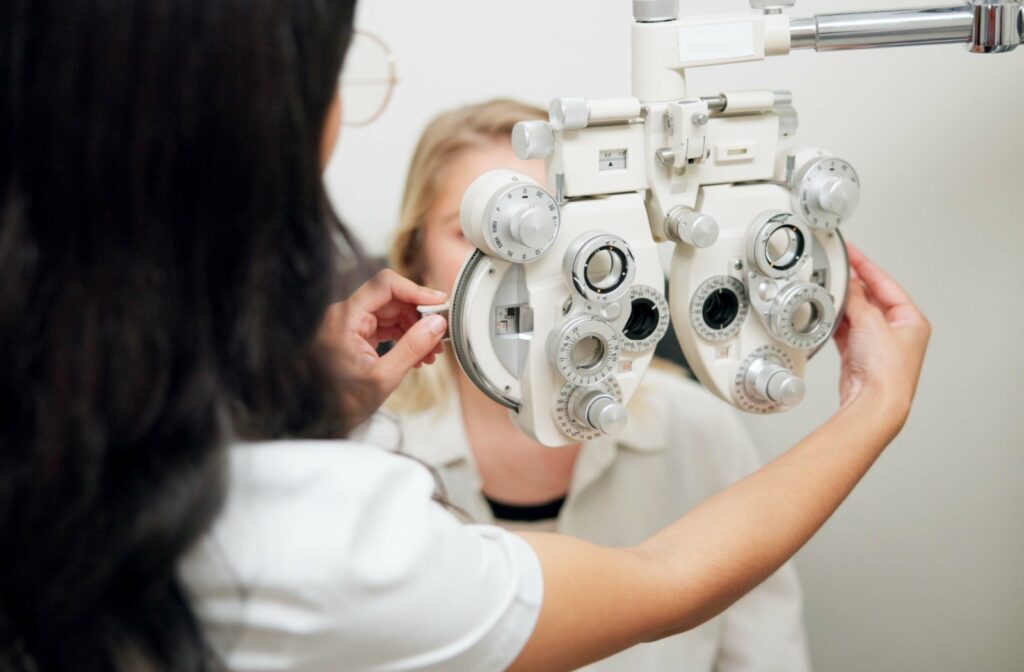
The Benefits of Regular Eye Check-Ups
When was the last time you had an eye exam? If it was solely to update your prescription, you’re missing out on the bigger picture. Here’s what regular exams can do for you:
- Early disease detection: We can uncover conditions like glaucoma or diabetic retinopathy in early, manageable stages. These issues often don’t come with noticeable symptoms.
- Overall health insights: Eye exams can reveal early indicators of systemic health issues like high blood pressure, diabetes, or even rare forms of cancer.
- Better quality of life: Clear vision supports independence and makes everyday joys, like reading or driving, easier and more enjoyable.
Investing in routine eye care allows you to focus on what matters most—with vision to match.
Don’t Let These Common Barriers to Eye Exams Stop You
Even when you know how important eye exams are, scheduling and attending them can feel like a challenge. Here’s how to address some of the most common hurdles:
- “I didn’t know how important eye health is.” Spread the word! Share this knowledge with friends or family members who may not realize the long-term benefits of routine eye care.
- “My calendar is already packed.” Life gets busy. Book your appointments months in advance, and set reminders to ensure you never forget.
- “I’m worried about the cost.” Financial barriers are very real, but there’s good news for Ontario residents. OHIP covers eye exams for children (under 19), seniors (65+), and adults with certain qualifying conditions.
Making your eye health a priority doesn’t have to feel out of reach.
What Happens During an Eye Exam?
If it’s been a while since your last visit, knowing what to expect can help ease any concerns. Here’s a quick rundown of what’s typically part of a comprehensive eye exam:
- Medical history review: Evaluates your health background to identify any potential risks to your vision.
- Visual acuity tests: Checks how clearly you can see at various distances.
- Refraction assessment: Confirms the accuracy of your eyeglass or contact lens prescription.
- Pupil & muscle response tests: Examines how your pupils and eye muscles function.
- Slit-lamp examination: Inspects the health of different parts of your eye, including the cornea, lens, and iris.
- Retinal examination: Uses pupil dilation to get a detailed look at the back of your eye.
- Eye pressure test: Measures eye pressure to screen for glaucoma.
The whole process is quick, thorough, and tailored to leave you with clear insights into your eye health.
Keep Your Vision in Focus with Central Optometry
Seeing clearly is one thing, but understanding the importance of ongoing eye care truly sharpens your perspective. Think of regular eye exams as a proactive step towards protecting not just your vision, but also your overall well-being.
At Central Optometry, our professional team is dedicated to helping your vision and eye health. Whether it’s time for your next scheduled check-up or you’re navigating a specific concern, we have you covered with expert care in a welcoming environment.
Don’t wait. Your eyes deserve the best care, and it all starts with an appointment! Book your eye exam today.

